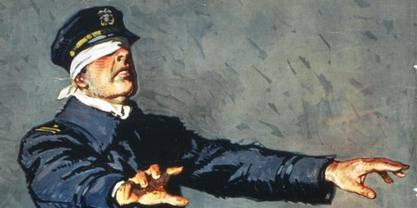
No Indication McKee Administration Conducted Analysis of Impact of Vaccine Mandate
On October 1, Rhode Island Governor Dan McKee ordered the enforcement of a vaccine mandate on Rhode Island healthcare workers.
Governor McKee’s vaccine mandate would almost certainly sideline healthcare workers (who did not get vaccinated), though the number would not be knowable at the planning stage. And there would be a corresponding impact on public health by restricting the availability of healthcare. Accordingly, did the administration conduct an analysis before implementing such a mandate? Anchor Rising reached out to Governor McKee’s press office and asked,
What analysis did the McKee administration do before implementing the vaccine mandate for health care workers? This could be anything related to the challenges facing the administration and/or the effects that the mandate might have. As part of this, was there evidence that patients were catching COVID-19 from providers?
A spokesperson from the governor’s office responded,
… Either I or RIDOH will get back to you.
The second response from Governor McKee’s press office on December 16 to a follow up contact was
RIDOH will be getting back to you on this. Thanks for your patience.
There has been no communication from RIDOH or the governor’s office since then.
The purpose of any Executive Order pertaining to healthcare is presumably the maximizing of public health. Rhode Island was already experiencing a healthcare worker shortage, with a corresponding negative impact across the board on healthcare, before Governor McKee implemented this mandate. It would have been prudent for Governor McKee and his Director of Health, Dr. Nicole Alexander Scott, accordingly, to conduct an analysis before proceeding with such a mandate. One of the big issues to look at would have been the negative impact on public health of allowing healthcare workers not vaccinated (not vaccinated against a disease, it is important to note, that has a 94% – 99% survival rate) to continue working versus the negative health impact of depriving a percentage of the public of healthcare, or delaying access to healthcare, by removing altogether those healthcare workers and the vital care they provide from Rhode Island’s healthcare system.
It is inexplicable that the McKee administration apparently did not do so, especially in the face of known healthcare staffing shortages in the state. The formation of a study commission, announced by the governor on December 15, which
will explore additional short- and long-term solutions to the health care staffing challenges facing Rhode Island
not only underscores this misstep but has a distinct feel of locking-the-barn-door-after-the-healthcare-workers-have-bolted.
[Image courtesy Free Image.]

Many of us mentioned our deep concerns on a provider call with Dr. mcDonald and Diane Pelletier on September 18, 2021 (if I’m not mistaken). It was a very illuminating Zoom call, 300+ providers, being told that those who don’t want the vaccine aren’t right for health care anymore. I thought Dr. M was very emotional.
Do you agree with the decision to sideline 300+ providers for that reason, Meghan?
[…] But this does not altogether address the crux of the matter, which is that the vaccine mandate itself has “destabilized” the workforce by removing 1,300 healthcare workers. Let’s stipulate that the number of vaccinated workers is, in fact, 98% and not a lower number, which would increase the number of workers sidelined. Governor McKee and Director Alexander Scott have involuntarily removed 1,300 workers from an already short-staffed healthcare system during a pandemic on the basis of a rigid mandate that was implemented without an analysis as to its impact on public health. […]